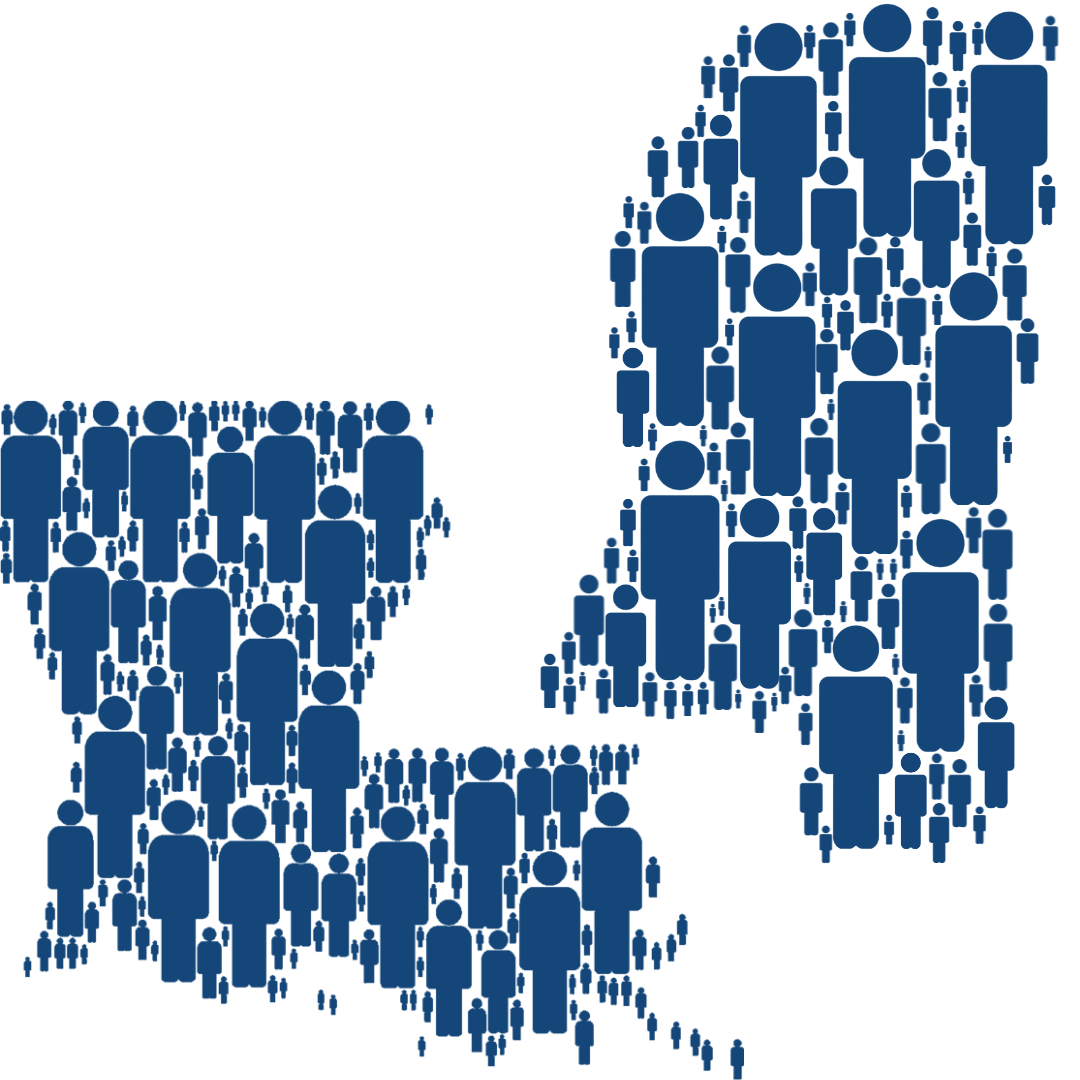
Human trafficking is the crime of using force, fraud, or coercion to compel a person into commercial sex acts or labor against his or her will.
Every year, millions of men, women, and children are trafficked worldwide – including right here in Louisiana and Mississippi. It can happen anywhere and victims can be any age, race, gender, or nationality.
TYPES OF TRAFFICKING
SEX TRAFFICKING
Sex Trafficking is the crime of using force, fraud, or coercion to induce another individual into commercial sex acts. In Louisiana and Mississippi, it is not required to demonstrate the use of force, fraud, or coercion when the victim is under the age of 21. This means that any person in Louisiana or Mississippi under the age of 21 who is engaging in commercial sex acts is a victim of a crime, not a criminal.
Sex trafficking in Louisiana and Mississippi takes many forms including familial trafficking, gang trafficking, a child exchanging a sex act for anything of value (survival trafficking), or an individual selling a child in exchange for anything of value.
Victims of sex trafficking may also experience labor trafficking by being forced to engage in criminal activity.
FAMILIAL TRAFFICKING
Familial trafficking is the crime of when a family member or someone the child knows—such as a teacher, coach, or family friend—offers items like money, video games, clothes, toys, etc. to a child in exchange for sexual favors. This crime can take place within the home, involving a family member, or outside the home when a family member facilitates it with another individual.
SURVIVAL TRAFFICKING
Survival Trafficking is the crime of using, force, fraud or coercion by offering or paying for shelter, food, clothing, or protection in exchange for sexual favors from runaway/homeless youth.
LABOR TRAFFICKING
Labor Trafficking is the crime of using force, fraud, or coercion to induce another individual into labor or services. Common types of sites where labor trafficking occurs in Louisiana and Mississippi include the seafood industry, agriculture, aquaculture, restaurants, construction, and the drug trade.
Forced criminal activity is also a form of labor trafficking, which involves compelling a person into committing crimes. Individuals who are forced to commit crimes–such as theft, drug trafficking, or access device fraud—are often coerced through threats of violence or acts of violence, and they do not benefit from the profits.
ONLINE EXPLOITATION
Online Exploitation is the crime of someone befriending or pretending to be a minor and enticing youth into sending inappropriate photos/videos and then using it as blackmail for money, information, or more photos/videos. These cases can often go unnoticed due to the privacy factor of it happening on children’s phones. A lot of times children and teens do not realize what is happening until it is too late.
How can you help protect our children?
SIGN UP FOR A FREE PREVENTION TRAINING
We believe that education is the first step towards prevention. The Children's Advocacy Center of Northeast Louisiana, a program of The Center for Children & Families is proud to offer free trainings to schools, churches, parents, or other groups in the community on human trafficking prevention and online exploitation prevention:
- Human Trafficking 101
- Internet & Social Media Safety for Parents
- Internet & Social Media Safety for Minors
- Internet & Social Media Safety for School Personnel
MAKE A DONATION
Your donations help us provide hope and healing to human trafficking survivors who urgently need help but lack the resources to obtain it. These children may not have the necessary documents for insurance. All are in crisis, searching for hope and someone to show up for them.
Your support has life-changing effects!
SHARE WHAT YOU LEARN
Tell friends, family members, and colleagues that this is an issue that is important to you! Encourage them to follow us on Facebook and Instagram, and set up a FREE training too.
If you suspect labor trafficking or sex trafficking is happening to you or someone you know, reach out and ask for help.
To report suspected trafficking, follow these steps:
If the suspected victim is 17 or under, call the DCFS Human Trafficking Hotline regardless of if the allegation is against someone in the home or out of the home. 1-855-452-5437 ext. 4
Give as many details as possible and the most accurate information possible. Report it to local law enforcement if the child/youth is in immediate danger.
